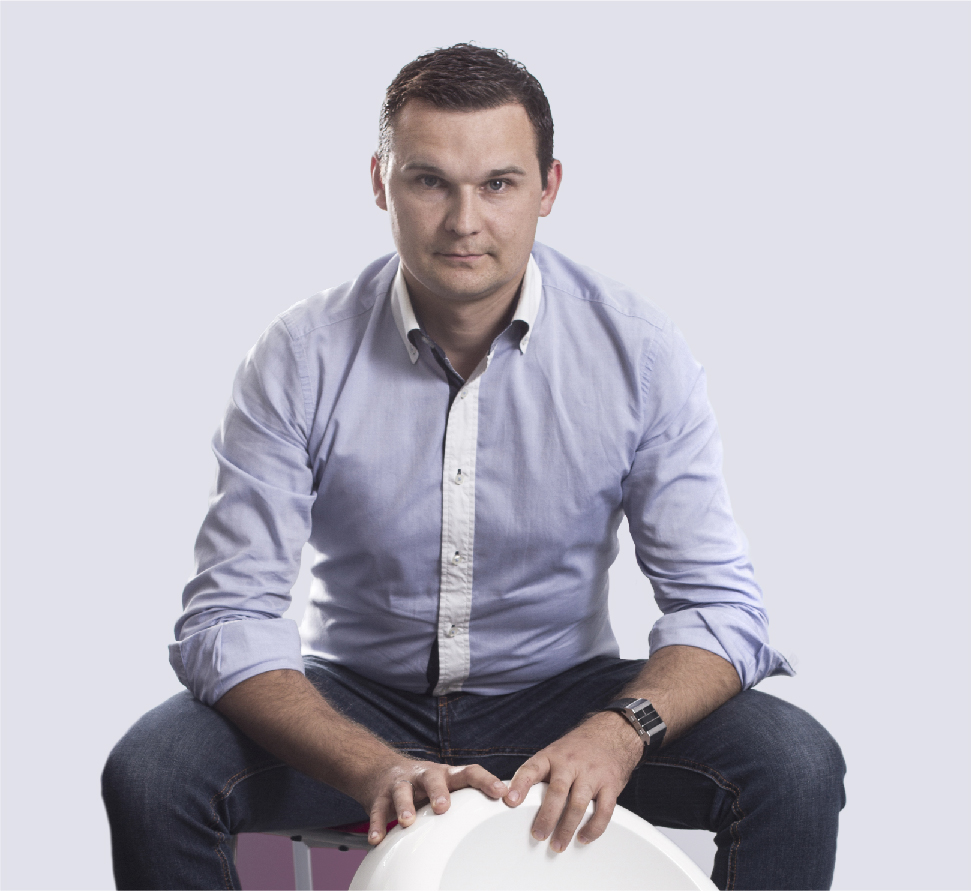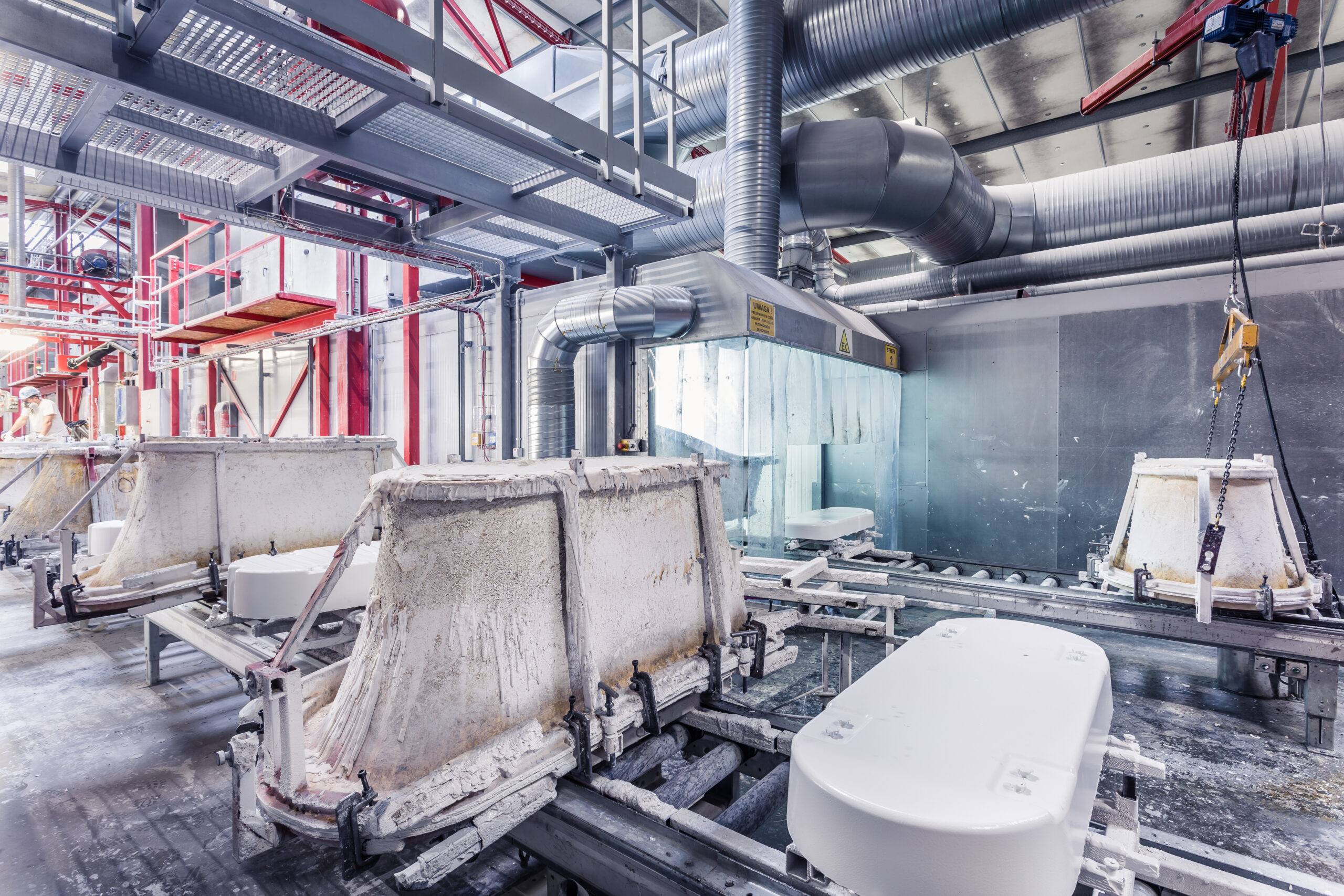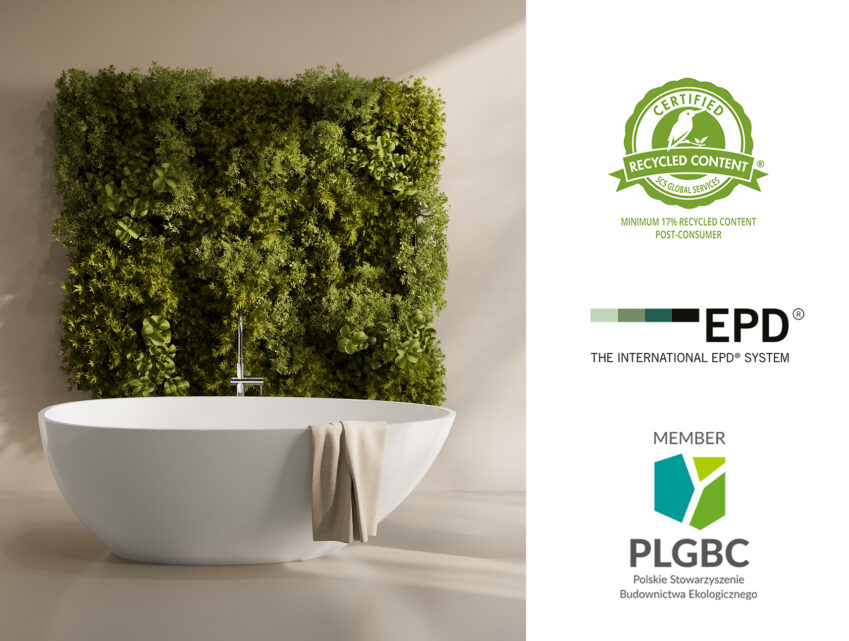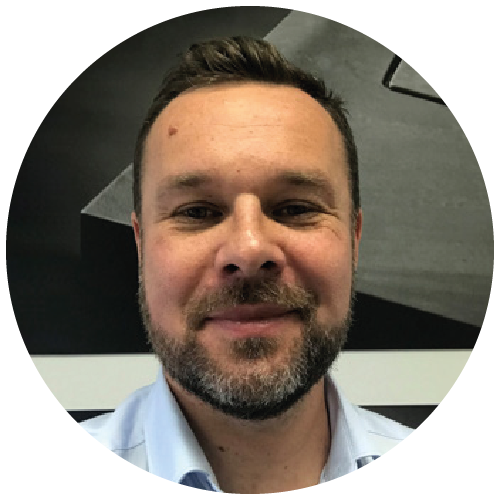FLEXIBLE, FAST AND IN LINE WITH TRENDS
Tue, 19/07/2022

Krzysztof Nowak, New Product Development & Innovation Manager at the company, talks about the process and stages of creating trend products and about the technological possibilities offered by Marmite production lines.
– How does Marmite technology support the emergence of trend products?
It can be said that design trends determine what our technology and production processes look like. Following them, apart from taking care of costs and broadly understood “sustainability”, is what shapes Marmite to a large extent. The implemen‐ tation of new colours, textures, the search for the thinnest or thickest available wall, work on complex shapes of products, etc. is what significantly influences the direction of development of production lines. A unique feature of our production processes and technologies is also high flexibility. We are able to meet the needs of large customers – e.g. leading DIY chains – for quick implementation and swift delivery of the first order, which is usually the largest one, because the customer has to stock up all supermarkets. It can be even tens of thousands of pieces. Most likely, no other manufacturer in this category can do this faster than Marmite. At the same time, our technology allows us to fulfil orders for single items – if there is such a need.
– Do you develop production processes by conducting research and development?
Yes of course. We can divide them into two types – proactive and those corresponding to the current needs of a given client. An example of a proactive and successfully implemented development project is the unique overflow system integrated in the bathtubs. Currently, the vast majority of our bathtubs are equipped with this system. It turned out to be a great market success. Many of our new solutions have been initiated by customers who report their needs to us. And this is how we work, among others on the development of new shower tray textures in line with the latest trends and on the technology enabling the extension of the colour spectrum of products. Thanks to the search for new painting techniques, we will be able to introduce a large range of new and demanding colours.
– Clients come to you with ready projects. How do you adapt projects to technological possibilities and make sure they do not lose their original character?
Many of the clients we work with know our technological requirements, so sometimes we get drawings that are practically ready for implementation. But despite everything, we also always create our own documentation. Part of our design process is a stage which we call Production Feasibility. It consists in consulting and analysing the designed product by a team associated with the production on a daily basis – technology specialists, process engineers, quality specialists, etc. This allows us to eliminate as many errors a possible at an early stage and make sure that the product will not cause problems in commercial order fulfilment. This easily translates into costs, timeliness and general customer satisfaction with the cooperation. Of course, the guiding principle and the daily challenge of our designers is to keep the unique features of a given design and at the same time adapt it to our technology. To make sure that we succeed, each product – its 3D model and technical drawing – after the design phase is sent to the customer for final approval or gathering comments for further design work. When the client is not sure if what he sees in the flat drawing and/or in the 3D model is what he or she wants, we can propose a prototype. It is very similar to the finished product. This makes it much easier for customers to make decisions. Finally, we can also prepare the project completely from scratch. We go to fairs, we follow trends, we know the market. So if a customer requests a new design, we can – of course, in consultation with him – develop the design of such a product. We have full possibilities in this regard.
– When a new design is ready and accepted by the customer – how far is it from the sketch to the customer’s warehouse? What are the different stages and how long do they last? How long does the customer wait for the product?
We have our standard process that we can break down into steps. The first one asts from the customer’s request to the preparation of our offer, i.e. a 3D model, technical drawing with a quote. It takes two weeks. Then, after the customer accepts the offer, the second stage begins – testing and implementation. During this time, we prepare and deliver to the customer the first production unit, the so‐called Initial Sample. This stage lasts 8 weeks for washbasins, 10 weeks for shower trays and 12 weeks for bathtubs. After accepting the Initial Sample, we receive a commercial order. Then the third and final stage begins. Completion of the order usually takes up to 4 weeks. This is usually indicative, because almost every implementation is different and largely depends on the specificity of the client.
– How many designs are produced annually in Marmite studios? What is the efficiency and capabilities of the company’s production lines?
In 2021, we implemented over 70 products proactively and over 200 products in cooperation with customers, where they were the initiators of the implementation. The production capacity of all Marmite lines is 2 million units per year.
– And finally – in what direction will Marmite’s production technologies develop in the near future? What are the current trends in this area?
Ecology is a trend that affects us more and more. So we are also developing in this direction. We have introduced recycled raw materials into production. The packaging of our products must also be ecological. If we use plastic for packaging – at least 50% of it must be recycled. We also have a few inquiries as to whether we can use waste from other technologies – e.g. ceramics, in the production process. I think that technological trends will develop in this direction – the use of waste in production. Marmite, of course, keeps an eye on this trend. We support and implement ecological solutions. We perfectly understand that care for the environment is our shared responsibility and priority.




